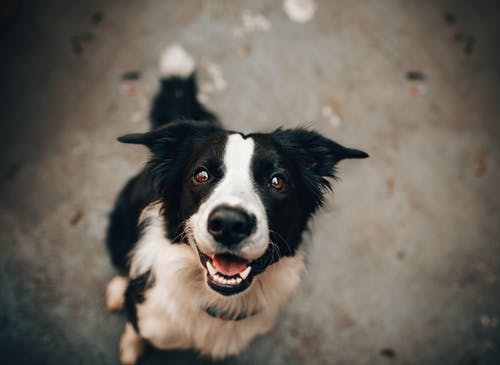Pining for a unique or unusual pet, like a bird or a potbellied pig? Caring for these endearing creatures requires specific knowledge, especially regarding their health. Many may ponder, how safe is veterinary surgery for my exotic pet?
Exotic Pets and the Specialized Veterinary Care Needed
Exotic animals- not dogs or cats- require certain care beyond regular veterinary services. These could be reptiles, birds, small mammals, amphibians, or zoo animals. Veterinarians need rigorous training, residency, and board certification to care for these creatures expertly. It’s like seeking the help of a dermatologist or ophthalmologist for specific human medical problems.
Understanding Veterinary Specialization
Like in human medicine, veterinarians, too, specialize in treating certain types of animals. Several practitioners may excel in dealing with conventional pets like dogs and cats. In contrast, others, like an exotic pets veterinary services may gain key skills that fortify them to enhance care for a wider range of unusual species.
Training and Certification of Exotic Pet Vet Specialists
Just having basic veterinary knowledge isn’t enough when dealing with exotic pets. Postgraduate training, like completing a residency and board certification, are vital checkpoints that one must cross to specialize in the field. Some veterinarians train to become avian specialists, while others may choose other fields, such as small mammal or zoo animal specialization.
Common Surgeries on Different Types of Exotic Pets
Different common procedures may have varying degrees of risk concerning the type of pet. However, a board-certified veterinary surgeon in Hattiesburg, MS, is equipped with specialized training to reduce surgical risk and ensure the best possible outcome.
Veterinary Surgery Factors Affecting Safety
Several considerations can affect the safety of your pet’s surgery. Professional qualifications, expertise in specific animal types, and access to modern veterinary tools and technology play a major role. Unforeseen problems during surgery may arise, and dealing with them need a specialized hand. The following details are as follows:
- Pre-existing Health Conditions: Pre-existing conditions like heart disease, liver disease, and diabetes can impact the safety of a veterinary surgery. They can present additional complications during surgery, such as increased bleeding or difficulty waking from anesthesia.
- Age and Weight: The age and weight of an animal can also impact the safety of veterinary surgery. Older animals may have a higher risk of complications, and overweight animals may struggle with anesthesia and recovery.
- Type of Surgery: Certain veterinary surgeries carry higher risks than others. More invasive procedures, such as organ transplants or orthopedic surgeries, can involve more complications.
- Anesthesia Risks: Anesthesia is always a risk in veterinary surgery, as some animals may have adverse reactions to the drugs used. Ensuring the animal has a properly functioning cardiovascular and respiratory system is crucial for safe anesthesia use.
- Surgeon’s Experience: The experience and skills of the surgeon play a significant role in the safety of veterinary surgery. More experienced surgeons typically have lower rates of complications.
- Preoperative Preparation: Proper preoperative preparation can significantly impact the safety of veterinary surgery. This includes effective fasting, adequate preoperative assessment, and thoroughly cleaning the surgical site.
- Postoperative Care: The quality of postoperative care also affects the safety of a veterinary surgery. Proper pain management, wound care, and monitoring for complications can greatly improve outcomes.
- Infection Control: Infections can pose a serious risk during veterinary surgery. Measures must be taken to minimize the risk of wound contamination, such as using sterile surgical instruments and providing the animal with appropriate antibiotics.
- Nutrition Status: The animal’s nutritional status can impact surgery safety. Malnourished animals may have a higher risk of complications, while overweight animals may face anesthesia and wound healing difficulties.
- Control of Pain and Stress: Managing an animal’s pain and stress levels before, during, and after surgery can enhance recovery and reduce the risk of complications.
- Communication: Clear communication between the pet owner and the veterinary staff before, during, and after surgery is crucial for ensuring safety. Any animal behavior, eating habits, or general health changes should be immediately reported to the veterinary staff.
- Facility Quality: The quality of the veterinary facility, including the cleanliness, the availability of emergency equipment, and the qualification of the staff can all impact the safety of an animal undergoing surgery.
Vet Occular Procedures
Eyes are intricate and delicate, and their issues, at times, complex. When ailments pertain to eyes, the services of professionals like animal eye vet specialists who have undergone elite training and have demonstrated the skills required to undertake precision-dependent ocular procedures.
Choosing Board-Certified Veterinarians for Your Pet’s Surgery
Checking if your vet is board-certified can bring you peace of mind and reassurance of quality care. Organizations like the American Board of Veterinary Practitioners or the American College of Zoological Medicine provide lists of certified veterinarians according to their specialty and location. You can refer to these to make an informed choice, ensuring a high standard of surgical care for your exotic pet.
Conclusion
As an exotic pet owner, know that veterinary surgery safety largely depends on the surgeon’s specialized education and skill. While all vets mean well, when it comes to complex surgical procedures, do not hesitate to seek out board-certified veterinarians. They can provide the specialized care your feathered or scaled friend rightly deserves.

